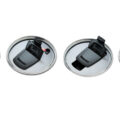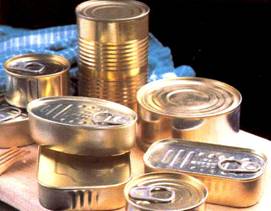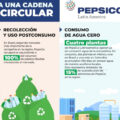In this interview, Emily Mullins, Head of Metal Packaging for North America and Mexico at Henkel, discusses the differences between the Latin American and North American markets, as well as regulatory challenges and opportunities linked to recycling. In addition to focusing on chemical and digital innovation to promote sustainability in can manufacturing, she highlights the role of the Women in Canmaking Association (WICA) as an engine for attracting and developing female talent in an increasingly diverse industry.
How would you describe the metal packaging market in North America and Latin America at the moment?
I would say that it is important to recognize the unique dynamics and key differences that shape these two regional markets. In Latin America, for example, beer plays a much larger role than in North America. However, both markets are seeing increasing consumer demand for new types of premium beverages, such as energy drinks, low-calorie options, and other ready-to-drink products. Both economies are growing, which is bringing rapid changes in consumption habits.
What are the main challenges and opportunities in this industry?
Variations in the specific regulatory conditions of each country and region create challenges for our industry. This includes legislation related to food safety, water availability, water discharge limits, and more. In addition, volatility related to tariffs on metal cans to and from the United States is creating uncertainty in the market.
Opportunities are often linked to sustainability issues such as recycling. Latin America has very high recycling rates and is a solid model of what is possible. The United States has great potential to emulate those achievements and improve metal can recycling rates.
More generally, I believe that turnover in the workforce is generating a loss of valuable knowledge in our industry, as experienced workers retire after a well-deserved career. At Henkel, we are taking steps to keep that knowledge alive by assisting our customers when they train new employees in chemical applications, safe handling practices, as well as process troubleshooting and approaches to automation.
And in terms of sustainability: how are Henkel’s innovations enabling can manufacturers to drive progress in this regard?
Henkel offers a range of lubricants, cleaners, surface treatments, and sealants that support more sustainable processes for can manufacturing. In addition, we provide chemical process control equipment and share our technical expertise with partners to optimize processes together.
I will give three examples that are currently receiving a lot of attention. First, our BONDERITE C-IC 72000 low-temperature can cleaning solution achieves outstanding results. We can reduce the cleaning temperature from 60 °C to 43 °C. This allows our customers to save energy and reduce related greenhouse gas emissions. In fact, customers using multiple boilers can turn one off, reducing maintenance and operating costs. Some customers have even reduced water consumption by up to 20%. And there is less heat and steam, so the work environment is more comfortable.
My second example is our next-generation mobility enhancers, such as Bonderite® M-PT ME-100, which reduce foam and water usage during can manufacturing processes. A third example is our new-generation sealing compound for food cans, Darex® WBC-9000-63-2, which was reformulated to eliminate a potential allergen. These examples show our commitment to sustainability, food safety, and adaptation to the changing regulatory landscape.
Beyond these specific products, we place a strong emphasis on co-innovation and open dialogue with partners throughout the value chain, including suppliers, customers, and academia. We have a growing network of Innovation Centers around the world. In Jundiaí, which is part of São Paulo in Brazil, we are building a new Inspiration Center to drive progress in new technologies in the Latin American region.
How is your company leveraging the latest digital technologies?
Short answer: Everywhere! Henkel is a company built on innovation, so it is part of our culture to adopt new technologies that drive business success for us and for our customers.
Our HEART tool is a prominent example. It calculates the carbon footprint from origin to gate of nearly 60,000 products, all certified by TÜV (a leading independent standards and certification agency based in Germany). These insights make it possible to provide a detailed life cycle assessment (LCA) of each product in our portfolio, so that customers have full transparency about our solutions and can integrate our data into their own sustainability management processes.
In our own operations, we are constantly expanding the use of connected and data-driven technologies that improve efficiency. We are using AI to make our internal processes more efficient, for example. Digital business models are also helping our teams improve customer experience and ensure the scalability of our services.
For can manufacturers, we are leveraging the full spectrum of possible digital tools. Our chemical process control equipment solutions, for example, are fully updated to support Industry 4.0. We also offer state-of-the-art remote technical support services for this market. We know that can manufacturers are investing in their digital infrastructure, and we are with them every step of the way. At all times, our digitization and innovation approaches consider sustainability and cost efficiency to unlock maximum positive impact while minimizing the environmental footprint.
As a female leader in this market, what changes have you observed during your career, and how can companies increase diversity in their management teams?
It is always exciting for me to meet more women at industry events with each passing year. Looking ahead, I am convinced that the Women in Canmaking Association (WICA) will be a great resource for attracting and developing women in our industry. I firmly believe in the power of diversity to enrich collaboration, creativity, and team performance, and that includes diversity in all its aspects. It is encouraging to see, for example, a young generation joining our industry.
Speaking from my own experience, the Fireside Chat format organized by WICA to commemorate the Day of Women in Engineering on June 26 of this year was a significant moment. I hope that my message—Be brave and be bold—has inspired some women and may even help them accept great opportunities when they arise and take the next step in their career.
To increase diversity, I would advise companies in the can manufacturing industry to explore a wide variety of measures. This begins with integrating diversity criteria into hiring and promotion processes in a clear and transparent manner. Companies can also benefit from robust mentoring and sponsorship approaches that support emerging leaders. Job rotation opportunities between departments can help break down biases and provide valuable experience. Some companies have had success with employee resource groups (ERGs) that foster a network of talented women and increase their visibility in the organization. And it is also helpful to ensure that Human Resources policies support women in the workplace, including flexible arrangements and parental leave instead of just maternity leave, which offers equal opportunities to both parents.
How do your specific profile and your team’s key projects create value for customers, and how do they contribute to sustainability?
I have more than 20 years of experience in engineering and marketing. The engineering part helps me understand our customers’ processes and identify where we can add value. The marketing part is about learning to be a good listener. Really, that’s how we drive innovation and empower sustainability. We listen to our customers when they explain their unique challenges, strategies, and goals. In our team, we listen to each other and give open feedback on potential opportunities to achieve real improvements for our customers. We also listen to market trends, of course. And we listen to our company’s constantly evolving ambitions, because that helps shape the way we develop future-oriented solutions for our partners and markets.
Our contributions to sustainability, for example, are always aligned with Henkel’s overall sustainability goals. To reduce the impact of our own operational footprint, we now use 89% renewable energy in our production facilities worldwide. By 2030, our goal is to reach 100% renewable energy. In addition, we are striving to reduce water consumption in our manufacturing centers. For example, a water reduction project at our plant in Warren, Michigan (USA), where we produce our cleaners and surface treatments for metal packaging, resulted in a 40% reduction in municipal water consumption.













0 Comments